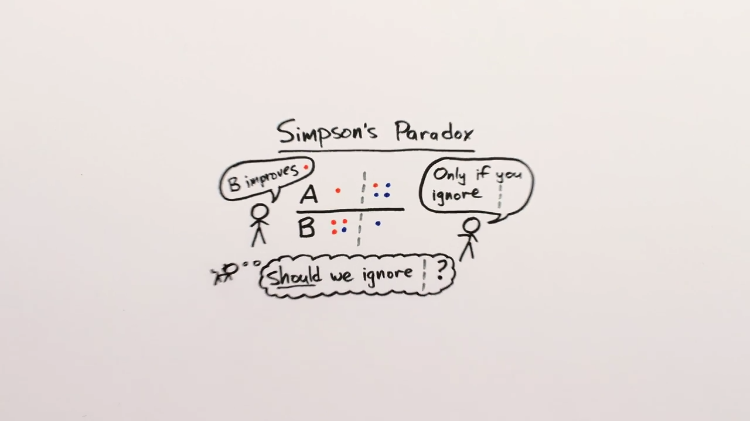How Simpson’s Paradox Allows For a Single Set of Data Analysis to Have Contradictory Results

In a two-part video, Henry Reich of MinutePhysics host explains how a single set of data analysis can have contradictory results per Simpson's Paradox, the principles behind this fallacy and the context required to get to the accurate results. Reich also provides understandable whiteboard examples of the paradox in action, specifically including its effect upon university education.
Simpson's paradox, a statistical paradox and ecological fallacy where seemingly contradictory results are implied by a single set of data depending on how it's grouped. The paradox can arise in medical studies, student test scores, and so on.
This video is about how to tell whether or not university admissions are biased using statistics: aka, it's about Simpson's Paradox again!